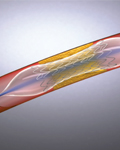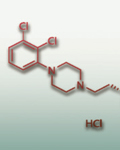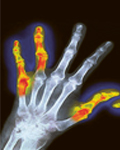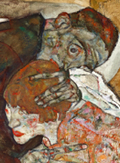The eLitMed.hu medical portal uses computer cookies for convenient operation. Detailed information can be found in the Cookie-policy.
Lege Artis Medicinae - 2019;29(10)
Content
[Medical therapy of peripherial artery disease]
[Care of PAD (peripherial arterial disease) is one of the most negligent area of cardiovascular diseases: on one hand patients suffering from PAD are the most uncared, less educated and health-minded population (it’s enough to keep in mind the high rate of smoking and alcohol-abuse among them) in addition the number of angiologists is insufficient for the treatment of PAD. Although detection of PAD would be easy as a widely applicable, cheap screening method, the ankle-brachial index is available which is an obligatory screening investigation in general care. Therapeutic options are better and better since cilostazol was launched we have an evidence-based treatment which can solve the symptoms, slower the progression which is strongly recommended (IA recommendation) in both American and Hungarian guidelines. Cilostazol, a PDE3-inhibitor has complex pharmacological effect but contraindicated in several clinical conditions as pentoxiphylline is not totally excluded from the therapeutic arsenal of PAD. The place of antiplatelet agents is well-defined in the most recent European guidelines in the treatment of PAD. The jumping development of interventional radiology beyond medical therapy contributed a lot to prevent limb amputations in the case of early detection of PAD. ]
[Donizetti's ailment: mood disorder, Barbaja, or luetic derailment?]
[The occurrence of specific forms of mood disorders is significantly higher among eminent creative persons, thus the talent and creative skills show some connections or may have common roots with mood swings. This phenomenon can be observed among composers as well. Our paper briefly summarizes several aspects of Gaetano Donizetti’s life (1797-1848), and some characteristic features of his operas. After his musical studies and initial successes Donizetti was hired by the opera impresario Domenico Barbaja who pressed him under contract to write operas in a considerable number. Donizetti’s personal tragedy was that his wife and three children have died young. He composed more than 70 operas, wrote the librettos for some of them, had drawing skills, and a sense for theatre Gesamtkunst. His composing technique was incredibly fast, partly due to the external pressure (especially by the impresario Barbaja). Beside the feverish speed (hypomania) he suffered of episodes with genuine fever, headache, and nausea. From 1845 onward full apathy, depression (occurred already earlier), and paralysis (progressiva?) developed hindering any creative power and meaningful interpersonal contact, so he was admitted to a closed mental facility. His illness was considered syphilis, but prevailing bipolar mood disorder may strongly be presumed today which is supported by early emerging creativity and hypomanic signs, transient mood swings, the composing technique, his multimodal talent, the abundance of his works (output of 3-4 operas a year), the vein (mood) streaming from the operas (’maddening scenes’ alongside lax and sparkling characters) and by certain circumstances (he was able to write opera buffas during his greatest personal tragedies). To all these components there can certainly be added an exogenous environmental pressure factor: Domenico Barbaja, the ’prince’ (and taskmaster) of opera impresarios. ]
[Thiazide- or thiazide-like diuretics should be used in the treatment of patients with hypertension? Particularities of the situation in Hungary]
[Diuretics have remained the cornerstone of the antihypertensive treatment since their widespreading in the 1960s. According to the 2018 ESC/ESH Guidelines for the management of arterial hypertension, in the absence of evidence from direct comparator trials and recognizing that many of the approved single-pill combinations are based on hydrochlorothiazide, this drug and thiazide-like indapamide can be considered suitable antihypertensive agents. In the 2018 Hungarian guidelines indapamide is named as the most efficacious diuretic in the treatment of patients with hypertension. The aim of the publication is redefining thiazide- and thiazide-like diuretic use in the treatment of hypertensive patients, with particular attention to presently available hydrochlorothiazide and indapamide, and their combination drugs in Hungary.]
[Experiences with the Hungarian version of the Sexual Risk Behavior Beliefs and Self-efficacy Scales ]
[INTRODUCTION - One of the most emphasized areas of school health education is sexual safety. For risk reduction, adolescent’s beliefs and self-efficacy about sexual safety are decisive; however, no Hungarian measurement tool for this construction was available before. The aims of the present study were to adapt the Sexual Risk Behavior Beliefs and Self-efficacy Scales (SRBBS) to Hungarian, to explore the gender differences, and to assess predictors of condom use among high school students. METHOD - 9th and 10th class high school students in a north-Hungarian city were involved in our cross-sectional study (N = 649; 52.5% boys; mean age: 16.7 years; SD = 1.01 years). Measures: SRBBS questionnaire, sexual behavior issues. RESULTS - The psychometric analysis of SRBBS has yielded encouraging results. The theoretical factor structure is largely supported, the internal consistency of the scales is adequate and its test-retest reliability is mostly acceptable. 35.5% of the participants had sexual intercourse during their lifetime and 65.8% had used condoms at the last occasion. The boys (OR = 2.17, p = 0.021) and those who had more positive attitude towards condom use (OR = 1.24, p = 0.002) were significantly more likely to use a condom during the last act than girls, and subjects with less favorable attitude towards condom use. CONCLUSIONS - SRBBS questionnaire should be introduced into domestic research to measure the effectiveness of health check-ups and school health education programs. ]
[Population-level QALY gain estimates with the use of cariprazine for patients with negative symptoms of schizophrenia in Hungary]
[INTRODUCTION - The loss in quality of life caused by mental illnesses has been growing in developed countries. This study aims to quantify the possible gains in quality of life by advantages of cariprazine therapy while treating patients with negative symptoms of schizophrenia in Hungary. Comparator therapy was defined as the currently available second-generation oral antipsychotic drugs. METHODS - In order to estimate the reachable gain in quality of life with cariprazine, an 8-state deterministic Markov cohort model was developed. Data was gathered from relevant scientific literature and public databases. The main assumptions regarding patient pathways have been validated by clinical experts, based on their real-life experience. The number of patients with negative symptoms of schizophrenia was estimated by the same methods as well. Sensitivity analyses were conducted on the input parameters. RESULTS - When compared with currently available second-generation oral antipsychotics, cariprazine generated an estimated increase of 0.05 quality-adjusted life years per patient in 2 years run. The deterministic sensitivity analysis confirmed the robustness of the results. Based on data of the National Health Insurance Fund and the scientific literature, a total gain of 450 quality-adjusted life years is expected at national level over a time horizon of 2 years. Even higher gains of QALY can be expected for longer time horizons. CONCLUSION - Based on conservative estimates significant health gain can be generated, if all patients with negative symptoms of schizophrenia would receive the adequate cariprazine therapy in Hungary instead of the currently used second-generation oral antipsychotic drugs. ]
1.
Clinical Neuroscience
Is there any difference in mortality rates of atrial fibrillation detected before or after ischemic stroke?2.
Clinical Neuroscience
Factors influencing the level of stigma in Parkinson’s disease in western Turkey3.
Clinical Neuroscience
Neuropathic pain and mood disorders in earthquake survivors with peripheral nerve injuries4.
Journal of Nursing Theory and Practice
[Correlations of Sarcopenia, Frailty, Falls and Social Isolation – A Literature Review in the Light of Swedish Statistics]5.
Clinical Neuroscience
[Comparison of pain intensity measurements among patients with low-back pain]1.
Clinical Neuroscience Proceedings
[A Magyar Stroke Társaság XVIII. Kongresszusa és a Magyar Neuroszonológiai Társaság XV. Konferenciája. Absztraktfüzet]2.
3.
Journal of Nursing Theory and Practice
[A selection of the entries submitted to the literary contest "Honorable mission: the joys and challenges of our profession" ]4.
Journal of Nursing Theory and Practice
[End of Life and Palliative Care of Newborns in the Nursing Context]5.
Journal of Nursing Theory and Practice
[Aspects of Occupational Health Nursing for Incurable Patients ]












